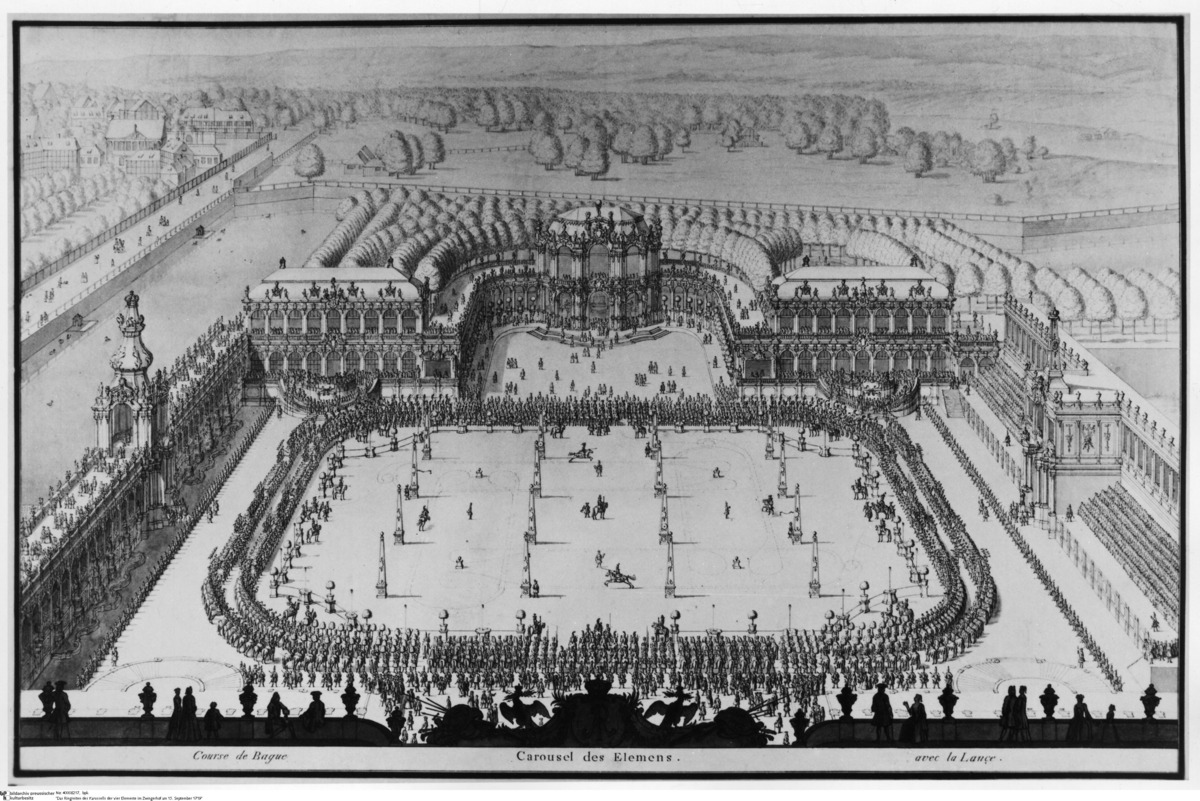Source

Source: bpk-Bildagentur, image number 40008217. For rights inquiries, please contact Art Resource at requests@artres.com (North America) or bpk-Bildagentur at kontakt@bpk-bildagentur.de (for all other countries).
Large-scale tournaments were common in the Baroque and absolutist era. They served multiple purposes, entertainment, of course, being one of them. But tournaments were also occasions upon which nobles and other interested spectators, such as foreign diplomats, could be brought together under the watchful eye of a presiding ruler. This drawing shows a ring jousting tournament in the Dresden “Zwinger” (a large palace complex and royal courtyard enclosed by fortification walls). Unlike most “Zwinger,” which were built as defensive retreats, the one in Dresden was designed to host courtly festivals. It was commissioned by August “the Strong” (1670-1733), Elector of Saxony and King of Poland, and built by his court architect, Matthäus Daniel Pöppelmann (1662-1736). Under August’s reign, Dresden became the foremost center of Baroque festival culture in Germany. Pen-and-ink drawing by Carl Heinrich Jacob Fehling (1683-1753), 1731.

Source: bpk-Bildagentur, image number 40008217. For rights inquiries, please contact Art Resource at requests@artres.com (North America) or bpk-Bildagentur at kontakt@bpk-bildagentur.de (for all other countries).
bpk